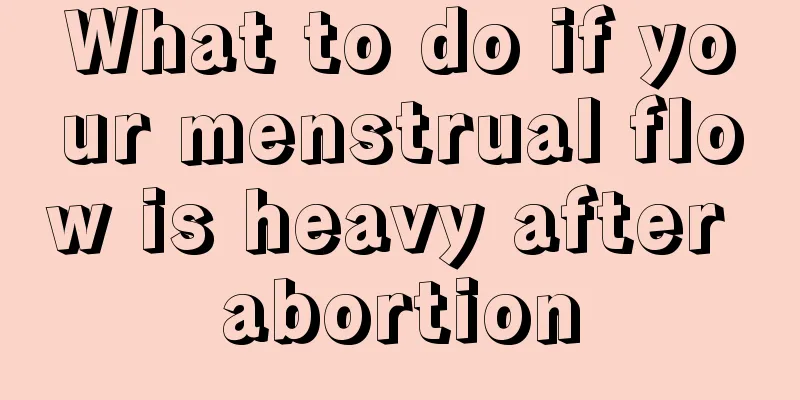What should I do if my mother's nipples are rotten?

|
A mother's nipples are very important to her baby because they are the source of her baby's food. Postpartum nipple rupture refers to cracks in the nipple and areola, which cause pain, bleeding or sticky discharge when wiped. This is mostly due to the delicate skin of the nipple. It is also caused by mechanical stimulation, local uncleanliness, too little milk, inverted or short nipples, improper breastfeeding methods, and the baby sucking too hard. The following will mainly introduce to you what to do if a mother’s nipples are rotten. It is rare for a mother to breastfeed her baby for the first time without cracking her nipples. Generally, there will be a small crack or abrasion on a part of the nipple, which will be very painful when the baby sucks milk. When the milk in both breasts is sufficient, the mother only needs to feed the baby from one breast. In this way, if the baby is not allowed to feed from the breast with the wound for one or two days, the ruptured nipple will naturally heal and there is no need to apply medicine. symptom Nipple rupture refers to cracks in the nipple and areola, which are painful and bleed or leak sticky fluid when wiped. This is mostly due to the delicate skin of the nipple. It is also caused by mechanical stimulation, local uncleanliness, too little milk, inverted or short nipples, improper breastfeeding methods, and the baby sucking too hard. This disease not only makes breastfeeding difficult, but also makes it easy for bacteria to invade and cause diseases such as suppurative mastitis and lymphangitis. Postpartum nipple rupture is mostly caused by first-time mothers who breastfeed improperly. Some of them let their babies fall asleep with the nipple in their mouth for too long; some have nipples whose skin is too delicate to withstand sucking; and some are bitten by babies. If you are careless, the ruptured area may become infected and inflamed, and may even cause mastitis, which will not only aggravate the pain but also affect the baby's health. Causes The nipple skin of a new mother is relatively delicate and cannot withstand the stimulation of the baby's sucking, especially when there is insufficient milk or the nipples are too small or inverted. As the baby sucks and bites the nipples hard, the nipple epidermis is soaked in saliva and becomes softened, peeled off, and eroded, forming cracks of varying sizes. In addition, the baby's sucking posture is incorrect, and the nipple and most of the areola are not covered, or the nurse excessively cleans the nipple with soap, alcohol and other irritants, causing the nipple to become too dry, which can easily cause the nipple skin to crack. In severe cases, the nipple may become ulcerated and lead to secondary infection. Usually, the yellow liquid that seeps out of the crack will form a scab after drying, which is dry and painful. Especially when the baby is feeding, it will feel like a knife cutting and is unbearable. Once bacteria enter through the crack, they will invade the breast and cause mastitis or breast abscess, necessitating the interruption of breastfeeding. Treatment 1. When the nipples are cracked, apply hot and wet compresses before each feeding, massage the breasts to stimulate the milk ejection reflex, and then squeeze out a little milk to soften the areola, making it easier for the nipple to connect with the baby's mouth. 2. When feeding, suck the healthy breast first. If both breasts are cracked, suck the lighter side first. Make sure the baby holds the nipple and most of the areola in his mouth, and change the feeding position frequently to reduce the stimulation to the nipple when sucking hard. 3. After feeding, press the baby's lower jaw lightly with your index finger, and when the baby opens his mouth, take the opportunity to pull out the nipple. Do not pull the nipple out of the baby's mouth abruptly. 4. After each breastfeeding, squeeze out a little milk and apply it on the nipples and areola to keep the nipples dry. At the same time, the protein in the milk promotes the repair of damaged nipples. |
<<: Is it good for pregnant women to have their period early?
>>: Can pregnant women eat purslane?
Recommend
Moderate cervicitis
For female friends, cervicitis is a very scary di...
The difference between pregnancy and menstrual symptoms
We all know that once a woman becomes pregnant, s...
Why does pregnant women have low blood sugar levels?
Women may experience many symptoms during pregnan...
Reasons why women's leucorrhea turns yellow and stringy
Girls are a relatively special group, because if ...
How many days does it take for the follicles to mature? Learn professional physiological knowledge
As we all know, women have several days of ovulat...
【Health Lecture】How to measure blood pressure at home
In order to ensure the popularization effect of l...
Bleeding after about ten days of menstruation
After the menstruation ends, women will actually ...
What does strong fetal movement mean?
After pregnancy, fetal movement will occur around...
What are the symptoms of catching a cold after an abortion?
After an abortion, women's moods tend to beco...
What causes nipple pain in women?
In life, many women will encounter symptoms of ni...
What are the effects of Huanglian Shangqing Pills and when is it suitable to take them?
Swollen and painful gums, toothaches, and mouth u...
Can I eat abalone mushrooms during menstruation?
Abalone mushroom is actually a kind of fungus foo...
Red mole on chest
Red moles on the chest are a relatively normal ph...
How to repair a ruptured breast suspensory ligament?
Breasts are the most important part of women, bec...
Are the “Internet celebrity drugs” bought overseas that are popular in the circle of friends really effective?
Nowadays, many young people are keen on buying &q...









